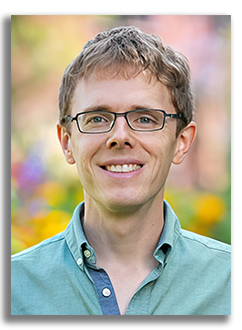
Abstract
In the Musser lab, we are broadly interested in understanding and exploiting the light-matter interactions of organic semiconductors. These processes underpin the operation of LEDs and solar cells, and new materials concepts promise applications from carrier multiplication in solar cells to ultrapowerful photocatalysts to quantum information science. Yet to turn this promise into a reality and improve on current applications, we require a deeper understanding of the processes of relaxation in these materials and the types of electronic state that are involved. Using a suite of ultrafast laser spectroscopy, we aim to provide a more detailed picture of the structure-function relationships that govern the photophysical dynamics. Frequently, the processes in these materials can be framed in terms of an interplay between bright and dark states, defined by their ability to optically connect to the ground state. But we are increasingly drawn to systems that don’t fit the neat bright-dark dichotomy. The ‘grey’ states in these materials mix the properties of both manifolds, whether due to disorder or higher-order state couplings that are frequently overlooked. Our results from simple molecular dimers to complex thin-film microcavities force us to reevaluate our basic pictures of molecular photophysics and presenting new opportunities for materials design.
Click here to see all available video seminars.
Click here to go to the SPREE HOMEPAGE.
Brief Bio
Andrew originally trained as a physicist with an eye towards solving global problems. Not infrequently accused of being a spy, he spent two years working and studying in Russia and tried his hand at organic synthesis at the Max-Planck Institute in Mainz, Germany, and genetic engineering at the Manchester Interdisciplinary Biocentre in the UK. He fully returned to science in 2008, enrolling in the Nanoscience master’s programme at the Zernike Institute for Advanced Materials, where he worked with Prof. Andreas Herrmann on the synthesis and characterisation of DNA-organic hybrid materials for drug delivery, sensing, and bioelectronics. Equipped with this understanding of how to design and make such functional materials, Andrew turned to the main task for his PhD: saving the world with green energy (work in progress). In 2010 he joined the Optoelectronics group at the Cavendish Laboratory (Cambridge, UK), under Prof. Sir Richard Friend. Working in the laser lab during his PhD and a subsequent postdoc, he used ultrafast spectroscopy to unravel the mechanism of singlet fission – this 2-for-1 deal for charge carrier generation has the potential to revolutionise the solar energy sector if we can just work out how to harness it. In 2016 Andrew moved to the University of Sheffield Department of Physics for a postdoc with Prof. David Lidzey to study organic exciton-polaritons and their impact on molecular spin physics.
In summer 2019 Andrew finally found his natural home as a physical chemist, joining the faculty of the Department of Chemistry and Chemical Biology at Cornell. His group weaves together the many strands of his past research, exploiting light-matter interactions in complex materials with an emphasis on organic exciton-polaritons, ultrafast vibronic dynamics, and electron-primed photocatalysis. His work has been recognized with a DOE Early Career Award and a Sloan Research Foundation Fellowship.
